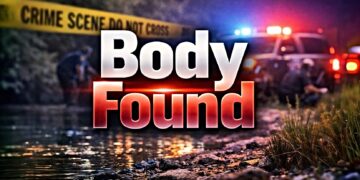When you’re involved in a personal injury incident in New Jersey, such as a car accident or slip and fall, proper documentation is essential to the success of your claim. One of the most important pieces of documentation is the police report.
If no report is filed after an accident, it can create challenges in proving fault, establishing the severity of injuries, and navigating insurance claims. The absence of a police report may threaten your ability to secure fair compensation for damages.
What are the Risks of Not Filing a Police Report in New Jersey
Failing to file a police report after a personal injury can severely impact your case. With it, proving your claim becomes easier. According to the Insurance Information Institute, individuals who file police reports are 3.5 times more likely to receive compensation and can increase their settlement amounts by up to 25%.
The NJ personal injury firm, Rosengard Law Group provides expert guidance on leaving the scene of an accident, helping to overcome missing evidence by gathering alternative documentation and witness testimonies to strengthen your case. Their experienced attorneys know how to build a solid case even when compulsory details are missing, ensuring that every aspect of the incident is considered. With expert assistance, you can improve your chances of receiving fair compensation, even in complex hit-and-run or no-police-report situations.
What is the Legal Importance of a Police Report in Personal Injury Claims
A police report serves as an official, unbiased record of the incident, helping to establish fault, document injuries, and provide key evidence that supports the legal claim for compensation in personal injury cases. In New Jersey, having a police report can make or break your personal injury case for several reasons:
Establishing the Facts of the Incident
A police report offers an impartial record of the incident, helping resolve conflicting accounts. In a car accident, it can clarify fault, note citations, and identify contributing factors like poor road conditions or bad weather, which are essential for proving your case.
Proof of Injury and Severity
In the aftermath of an accident, injuries may not be immediately apparent and can surface later. A police report often documents visible injuries at the scene, providing essential initial evidence. This documentation can help support your injury claim, especially if medical treatment is sought and you need to establish a timeline.
Credibility and Third-Party Witness Statements
A police officer may gather witness statements at the accident scene, which can strengthen your version of events. Without a police report, locating and presenting these statements becomes challenging.
Proving Liability
In personal injury claims, establishing liability is compulsory. A police report can provide an officer’s opinion on fault, based on evidence collected at the scene. This opinion can strongly influence insurance adjusters, juries, or judges, simplifying the process. Without it, proving liability becomes more challenging and subjective.
When Is a Police Report Not Necessary?
There are some situations in which a police report may not be necessary, though it is still highly recommended to file one in any accident. For example:
- Minor Accidents
- Private Property Accidents
In certain situations, a police report may not be necessary, though it is still recommended. For instance, in minor accidents with no injuries or significant damage, or accidents occurring on private property, you may not need a report, but it’s still beneficial.
According to the NSC, In 2020, approximately 4.8 million people were seriously injured in car accidents in the U.S. Highlighting the importance of proper documentation, such as police reports, in establishing fault and severity for insurance and legal purposes.
 How Does a Police Report Impact Insurance Claims in New Jersey?
How Does a Police Report Impact Insurance Claims in New Jersey?
A police report plays a significant role in insurance claims in New Jersey, especially in accidents involving personal injury. As New Jersey operates under a no-fault insurance system, having an official police report can help confirm the details of the accident and provide objective evidence for insurance adjusters. It can clarify key aspects like fault, the severity of injuries, and any contributing factors, such as weather or road conditions.
Without a police report, the insurance company may question the legitimacy of the claim, leading to delays, disputes, or even denial of benefits. The report helps streamline the claims process and ensures fair compensation.
FAQs
Why Should I File a Police Report After a Personal Injury Incident?
Filing a police report provides objective documentation of the incident, helping establish fault, record injuries, and offer vital evidence for insurance claims and legal cases.
How Does a Police Report Help in a Legal Case?
A police report can provide vital evidence, such as witness statements and the officer’s opinion on fault, which can be persuasive to insurance adjusters, juries, or judges in proving your case.
Conclusion
In New Jersey, not filing a police report after an accident can put your personal injury claim at significant risk. Without a police report, you may struggle to prove fault, establish the severity of your injuries, or navigate the insurance process. To ensure the strength of your case, it’s essential to file a police report whenever possible after an accident.
This document provides an impartial, official record that can be invaluable in your pursuit of compensation for injuries or damages.
















































































 How Does a Police Report Impact Insurance Claims in New Jersey?
How Does a Police Report Impact Insurance Claims in New Jersey? 





